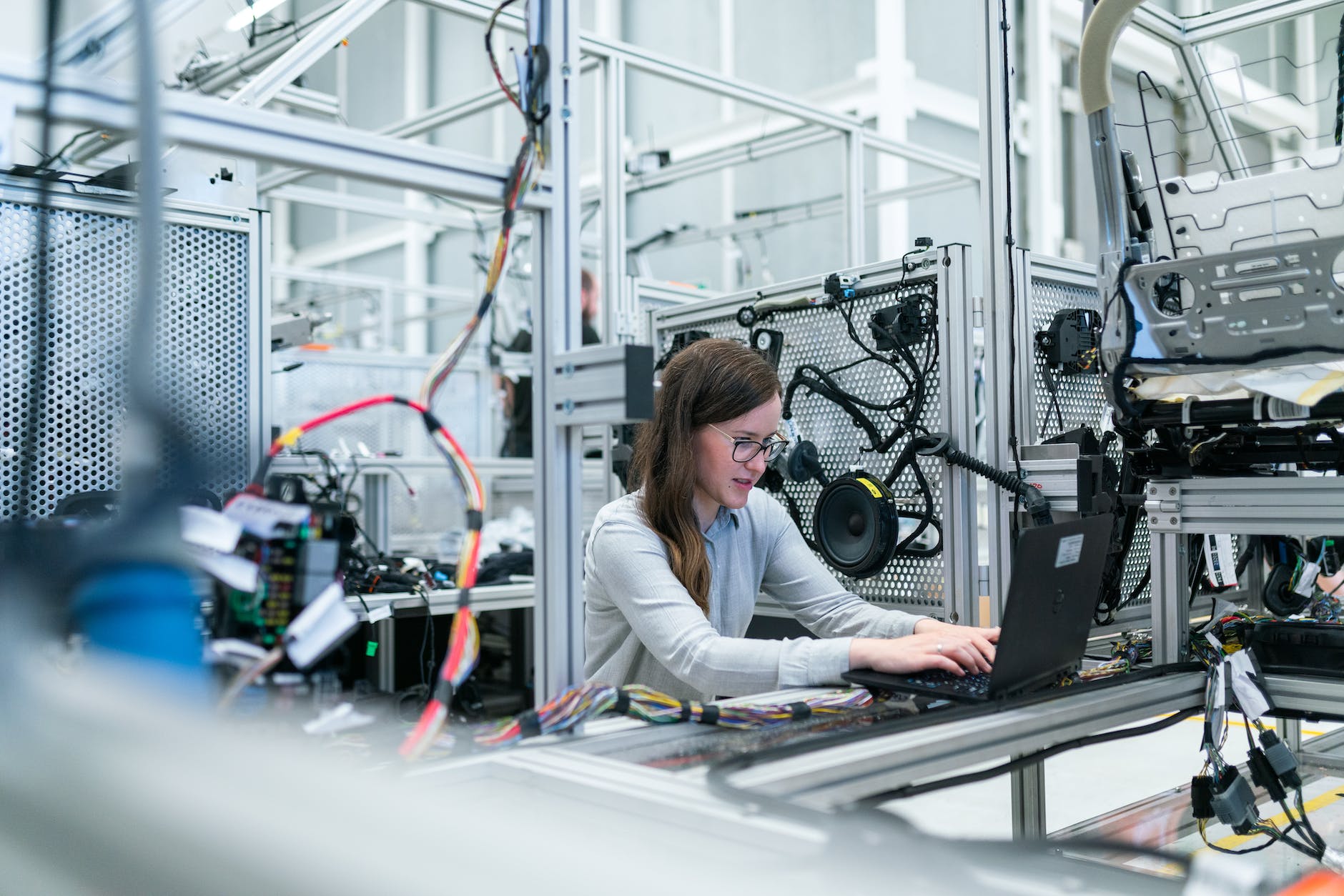Biotechnology, the field that bridges biology and technology, is gaining significant attention in today’s world.
With its promising advancements and potential for innovation, many individuals who may have otherwise pursued a more conventional STEM degree, are considering pursuing a career in biotechnology.
What is biotechnology
Biotechnology is a multidisciplinary field that merges biology with technology to develop innovative solutions and applications for various industries.
It involves the use of living organisms, cells, or their components to create or modify products, processes, or systems for practical purposes.
Biotechnology encompasses a wide range of applications, including genetic engineering, pharmaceuticals, agriculture, environmental science, and healthcare.
Through techniques such as gene manipulation, protein engineering, and tissue culture, biotechnology aims to improve human health, enhance food production, develop sustainable biofuels, and address environmental challenges.
By harnessing the power of biological systems and applying technological advancements, biotechnology has the potential to revolutionize numerous sectors and contribute to advancements that benefit society as a whole.
Core Modules and Solid Grounding
When embarking on a biotechnology degree, you can expect to delve into a range of core modules during the initial two years of study.
These modules provide a solid foundation by covering fundamental topics, equipping you with the necessary knowledge and skills required for advanced study.
This comprehensive approach ensures that you have a well-rounded understanding of the applied biochemistry and biotechnology industries.
Real-World Relevance
The benefit of studying biotechnology is that there are some important and real world use-cases.
You’ll have the opportunity to explore topics such as commercializing technology, entrepreneurship, and intellectual property, which are crucial aspects of the biotechnology industry.
To enrich your learning experience, lectures and case studies conducted by esteemed business leaders and academics are incorporated, allowing you to gain insights from industry experts.
Read the full article in the description below for advantages of studying biotechnology over biomed and biochemistry, and the industries you are likely to find work in.
Studying biotechnology also offers several distinct advantages over pursuing conventional degrees like biomedical science, biochemistry, or biology.
Firstly, biotechnology encompasses and integrates aspects of all these disciplines, providing a broader and more comprehensive understanding of the field.
By studying biotechnology, students gain knowledge in areas such as genetic engineering, molecular biology, and bioinformatics, enabling them to tackle complex problems from a multidisciplinary perspective.
Additionally, biotechnology programs often prioritize hands-on experience and practical applications, preparing students for the demands of the industry.
This emphasis on real-world skills and industry-relevant training sets biotechnology graduates apart and enhances their employability in a rapidly evolving field.
Furthermore, the research opportunities and exposure to cutting-edge technologies in biotechnology programs enable students to stay at the forefront of scientific advancements, fostering innovation and critical thinking abilities.
Overall, studying biotechnology offers a unique and advantageous pathway that combines various disciplines, practical skills, and research opportunities, preparing graduates for successful careers in the dynamic and rapidly growing biotech industry.
State-of-the-Art Facilities
To facilitate practical training and research, universities provide students with access to top-notch facilities.
This includes well-equipped laboratories for genomic and cell biology studies, tissue culture suites, and modern microscopes.
Having access to advanced tools and technologies enables you to gain hands-on experience and conduct experiments that contribute to your understanding of biotechnology principles.
Specialization and Flexibility
As you progress in your biotechnology studies, you will have the opportunity to specialize in specific areas of interest.
Many programs offer a wide range of optional modules, allowing you to tailor your education according to your career aspirations.
This flexibility enables you to delve deeper into the branches of biotechnology that align with your interests and professional goals.
Research Opportunities
Completing a research project or dissertation is often a crucial component of biotechnology programs.
This project provides an opportunity to apply your knowledge and skills to real-world scenarios, enhancing your problem-solving abilities and critical thinking skills.
Engaging in research also allows you to develop a deeper understanding of biotechnology and contribute to the field’s advancements.
Career Prospects
With the rapid growth and increasing demand for biotechnology, studying the subject can open doors to a wide range of career opportunities.
Biotech graduates are sought after by various industries, including pharmaceuticals, agriculture, healthcare, and environmental science.
The multidisciplinary nature of biotechnology equips graduates with transferable skills that are valuable in research, development, manufacturing, and regulatory roles within these sectors.
careers to go into
As a biotechnology worker, Your day to day duties will depend on your specialism.
In environmental biotechnology, you could:
- clean polluted land or water using micro-organisms and plants
- create alternative renewable sources of energy, like biodiesel
- make environmentally friendly raw materials, like biodegradable plastics
In industrial biotechnology, you could:
- clone and create enzymes for use in manufacturing food and drink
- create biological detergents and dyes for the textiles industry
- improve animal feed
- develop crops that are more resistant to pests
- genetically modify crops to increase productivity
In medical biotechnology and biotherapeutics, you could:
- study human genetics, proteins, antibodies, viruses, plants, fungi and bacteria
- research and treat diseases like cancer
- develop therapies, vaccines and hormones to treat the cause of diseases
- produce medicines using techniques like cell culture and genetic modification
read more about careers and apprenticeships in Biotechnology.
Conclusion
Choosing to study biotechnology can be an excellent decision for individuals who are passionate about merging biology and technology.
The comprehensive curriculum, access to cutting-edge research, state-of-the-art facilities, and opportunities for specialization and research provide a solid foundation for a successful career in the field.
Biotechnology graduates are well-positioned to contribute to groundbreaking discoveries and innovations, making a positive impact on society and the world at large.

![[MacOS Error] – Compressor does not support running in a macos virtual machine](https://cdn-0.ghoopi.com/wp-content/uploads/2023/09/img_6688-150x150.jpg)










